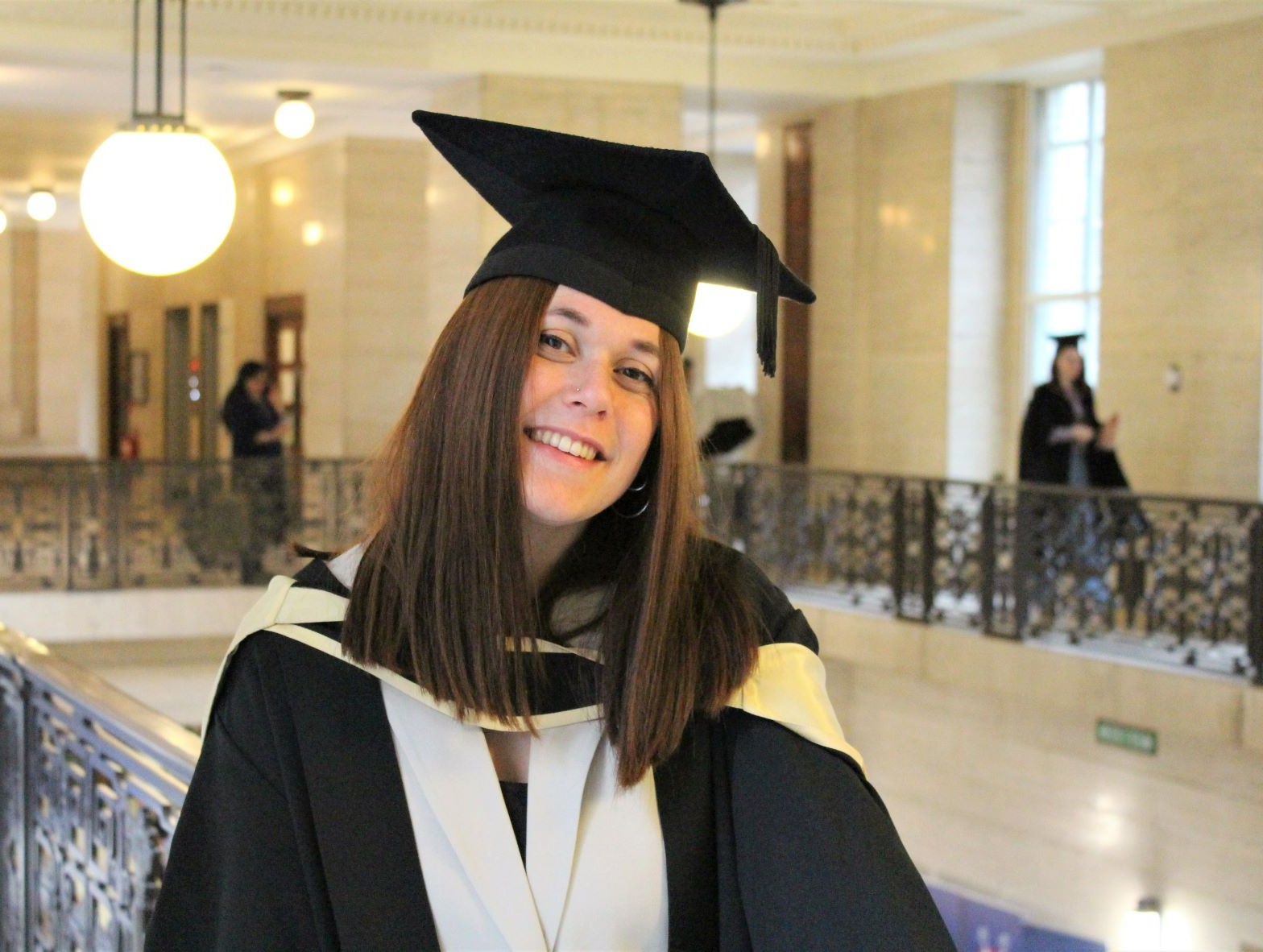Originally from Italy, Martina Innocenti chose to study an MSc in Childhood, Youth and International Development at Birkbeck because of the in-depth course content and the flexibility evening study afforded. From being incredibly worried that her language skills might hold her back academically, to winning multiple prizes for her dissertation, this is Martina’s story.
I kept saying to my tutor, ‘I’m not good enough to do a Master’s
I moved to the UK one year before starting my Master’s. At the time, I couldn’t speak English well. was taking language classes and working with early years children as Montessori early years educator. When I got accepted into Birkbeck, I was happy but I was also very worried about the language barrier, like I wasn’t good enough to do well in my studies because of it. I kept saying to my tutor, ‘I’m not good enough to do a Master’s – maybe mentally I’m ready to do it, but practically, I have this limitation.’ She encouraged me every step of the way, eventually suggesting that I convert to studying part-time rather than full-time, which made such a difference.
Being a part-time student was amazing
Being a part time student was amazing! It allowed me to continue working and gave me the vital time and space I needed to gain confidence in my English. I had time to really explore and deeply understand the specialist subjects I was learning about. It meant that I could actually enjoy the process of studying.
My language proficiency did not represent my intellectual capability
Now, when I consider that I was conducting evening interviews with youth in Peru, reviewing 50-page transcripts in Spanish then translating them to English and analysing data, all whilst working, it makes me feel quite proud. I was able to speak, work and think critically across two languages, neither of which were my native tongue, to gain very insightful data about something I’m passionate about. When I found out I won the Children, Youth and International Development prize for my dissertation, I couldn’t believe it! Then when I also won the Birkbeck Gender and Sexuality prize, I saw it as proof that my language proficiency did not represent my intellectual capability.
I felt like a proper researcher!
I’m so thankful that I had the opportunity to do my master’s over two years, and Birkbeck’s approach to structuring my course options was brilliant. I had room to grow at the pace I needed to become fully knowledgeable about my area of study and approach my dissertation with the attention, intensity and critical thinking it deserved. I felt like a proper researcher! Having a part-time structure to do all my literature reviews, data collection and analysis, and write the dissertation was empowering; I felt like I was able to give my best.
It was all just a matter of confidence
I realised through my Birkbeck journey that I’m a competent and multi-skilled professional, it was all just a matter of confidence. It took a while, and multiple strategies, to build this confidence. For instance, I made an effort to see my classmates in non-academic settings, so I could get more comfortable with listening to and speaking English. I also reached out for help whenever I could, asking my friends, housemates and tutors to review my writing style and feedback wherever possible. And I shared my thoughts and frustrations with my dissertation supervisor, who was a source of great inspiration and support. In the end, my determination combined with the support I got, meant that my dissertation was a uniquely valuable intersectional contribution to literature and research about Latin American working children.
Further Information:
Find out more about studying MSc Children, Youth and International Development
Find out more about being an International Student at Birkbeck
